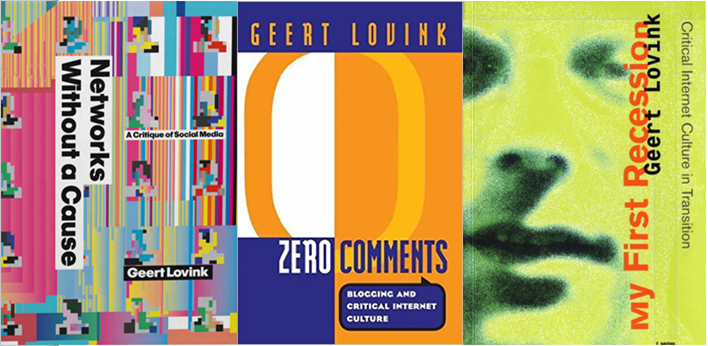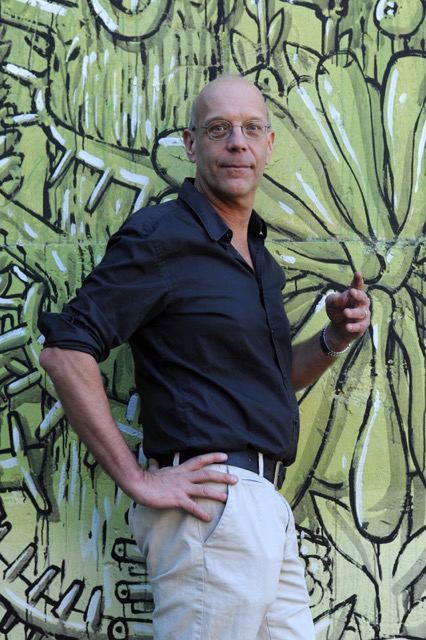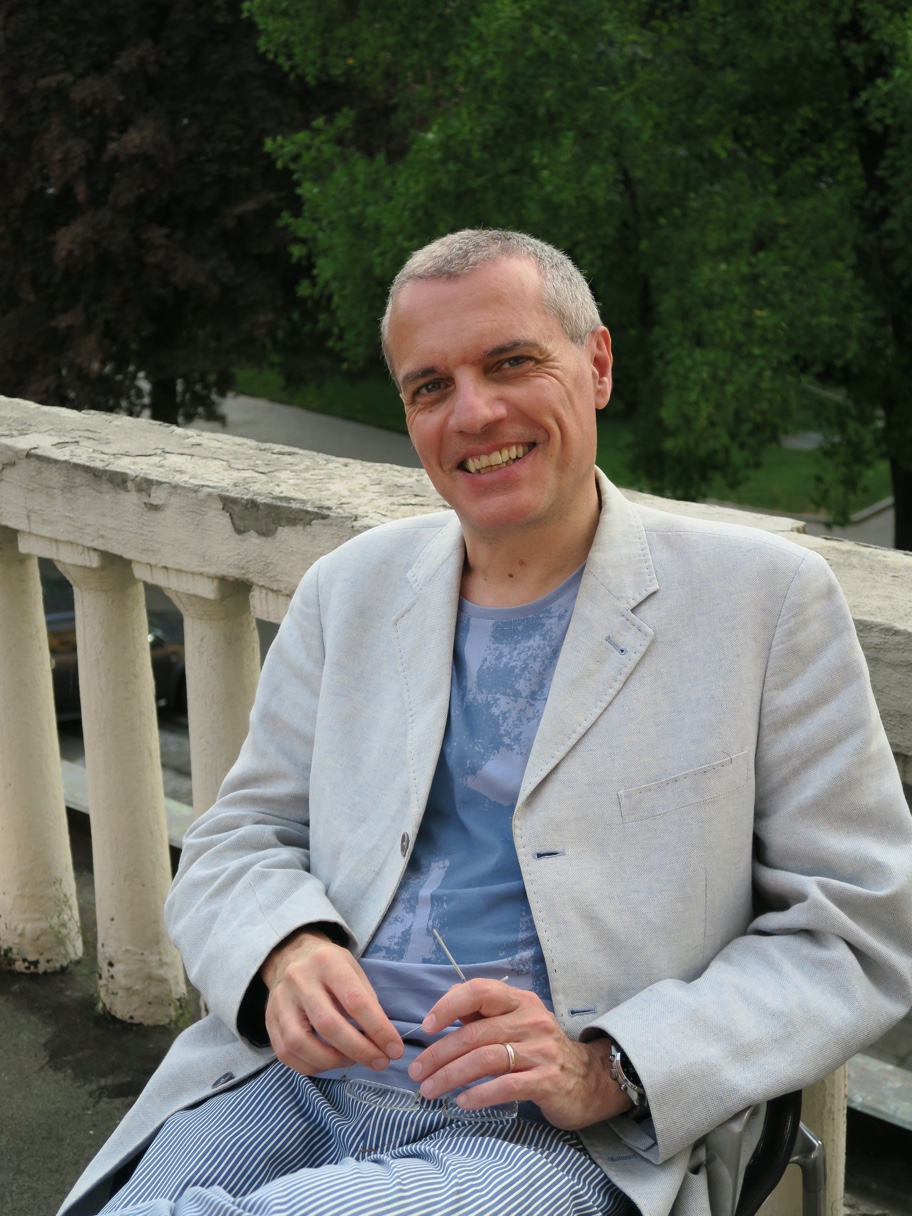Web philosophy

Geert Lovink è uno dei più importanti studiosi delle culture di rete. Olandese, è direttore dell’Institute of Network Cultures
Remo Bassetti: Lo studio di Internet e dei social media sin qui non sembra decollare. Un vuoto sorprendente, se si pensa allo stadio che aveva raggiunto la teoria critica dei media. E’ anche lei di questa opinione?Forse è richiesta una interdisciplinarietà maggiore?
Geert Lovink: Mi vergogno per la mia incapacità di estendere l’argomento e gestirlo a livello, diciamo, di Naomi Klein. Ciò che manca nel nostro contesto è un movimento sociale in cui la critica tecnologica possa prosperare (paragonabile al femminismo, al movimento operaio, all’ecologia).Siamo bloccati in ghetti, sì, auto-progettati, e a volte persino confortevoli, senza le conoscenze adeguate di come raggiungere un pubblico più ampio. L’urgenza è lì, senza dubbio. Auto-immoliamoci pure nelle critiche, dato che non posso rispondere alla sua domanda senza considerare il mio ruolo. Sono d’accordo che il progetto “la critica della rete” che abbiamo iniziato più di 20 anni fa, non è decollato granché.
Non possiamo neanche lasciare agli storici la spiegazione perché non ce ne sono molti interessati alla questione. Lei ha giustamente sollevato la questione di un’oggetto assente, un’opportunità mancata. Quando internet è diventato mainstream, eravamo nel bel mezzo di una brutale ondata neoliberale. C’è stato un consenso tra i fanatici della tecnologia, gli imprenditori e i media tradizionali che ha affossato ogni critica seria. Tutti costoro convenivano che le obiezioni fossero obsolescenti.
Non c’era, ed è tuttora assente, qualsiasi modello di ricavi. Come si guadagna da vivere un critico tecnologico? Le start-up forniscono nuovi posti di lavoro? Le istituzioni artistiche sostengono i giovani critici della rete? Ovviamente no. Molti direbbero: dovrai essere un accademico, questo è il tuo destino. Ma funziona così anche per i settori tradizionali come la letteratura, il teatro o persino il film.
Discipline come la filosofia o la sociologia, gli studi culturali, la storia dell’arte o la letteratura avrebbero potuto scendere in campo, ma non è accaduto. Per una serie di ragioni si sono sentite minacciate da internet e dalla digitalizzazione in generale. Adesso è troppo tardi. Naturalmente non è mai troppo tardi per i giovani che entrano in scena in questo momento… ma dovranno cominciare da zero in una fase in cui sono pochi il tempo e le risorse per la riflessione sistematica. Rimango ottimista, tuttavia. Magari una prossima crisi economica produrrà una fantastica generazione di giovani pensatori non dipendenti dai social media, che si ribellano e superano i problemi reali ed esistenti di distrazione e iniziano a lavorare sulle alternative valide- e i loro concetti critici sottostanti.
RB: Il web, rispetto ai media precedenti, è soprattutto rottura? O ci sono degli elementi di continuità su cui dobbiamo porre l’attenzione?
Geert Lovink: Sarebbe una domanda ideale per Marshall McLuhan. Ultimamente, tendo a pensare che dovremmo guardare Internet come una meta infrastruttura che incorpora la sfera dei media, ma non può essere ridotto esclusivamente ad essa. Nel 1990 abbiamo sbagliato a chiamare queste tecnologie emergenti “i nuovi media”. Forse chiamarlo uno sbaglio è troppo forte. È lo strato dei media e della comunicazione che sta avendo l’impatto più visibile sulla vita quotidiana dei miliardi di abitanti di questo pianeta. Pensate ai “social media”. Tuttavia, un impatto altrettanto profondo su di noi viene dai piani logistici, dal coordinamento dell’assistenza sanitaria, dall’istruzione, dal traffico e dalla produzione di alimenti. Tutto questo è coordinato attraverso “il web” (come lo chiama lei).
RB: In un momento in cui comincia a emergere una certa consapevolezza sulla crisi del liberismo selvaggio, sembra mancare altrettanta consapevolezza del fatto che il capitalismo delle piattaforme, di quel liberismo, è l’avanguardia più aggressiva. Il social media coincide con l’esasperazione della morte del sociale già descritta da Jean Baudrillard. Come lei ha scritto, Facebook è popolare grazie alle sue limitazioni tecniche e sociali. Ma viene prima l’uovo o la gallina? I social media sono diligenti esecutori di questa morte del sociale o sono gli agenti attivi di questa distruzione grazie al loro tipo di infrastrutture? E’ lo stesso quesito che possiamo porci per la rabbia del web. Un’infrastruttura come Twitter si limita a farla emergere o la crea?
Geert Lovink: Nel secolo scorso dipendevamo da scrittori, giornalisti e ricercatori per “catturare” lo spirito del tempo e riferire ai governanti, ai politici e agli altri esperti quale era lo stato d’animo tra il pubblico in generale. In questi giorni, i dati sulla “temperatura” sociale sono sempre più nelle mani dei monopoli di social media. A loro volta, essi possono iniziare a manipolare tale conoscenza strategica e guidare, filtrare e persino creare nuovi problemi. La questione dell’uovo e della gallina, tuttavia, rimane. Non esiste una soluzione per questo, salvo iscriversi alle teorie del complotto. I circuiti cibernetici stanno girando ad una velocità talmente alta che il disfacimento delle catene di informazioni che producono diventa un’ impresa meticolosa. Tale ricerca apparterebbe a un giornalismo investigativo indipendente, che andrebbe sostenuto, eppure corre il rischio di diventare una prova storica marginale. Questa è la nostra sfida: come fare ricerca critica nell’era della comunicazione in tempo reale?
RB: Esiste un modo di ricollegare il web alle sue promesse iniziali? Lei parla di reti organizzate e rinascita cooperativa. Ci potrebbe spiegare più concretamente questi concetti e fare un cenno ai passi che si dovrebbero compiere?
Geert Lovink: Vorrei iniziare con l’ultimo. L’aspetto della (gratuita) cooperazione è antico ed è stato teorizzato già nel 1970 quando il sistema centrale dei computer è stato collegato attraverso le prime reti. Al momento i computer remoti sono stati collegati per condividere poche risorse, per via del tempo di calcolo. Queste attività sono state poi coordinate attraverso nuovi livelli di comunicazione elettronica (e-mail, chat, gruppi di discussione). È difficile non parlare in quest’occasione di Howard Rheingold, il suo è un lavoro chiave. Per quanto mi riguarda, la storia inizia con iniziative quali Oekonux, la Fondazione P2P e Discordia, che ho descritto nel mio libro del 2003 La Mia Prima Recensione . La teoria della libera cooperazione proviene dal gruppo Discordia. Insieme a Trebor Scholz ho organizzato inizialmente un evento su di essa a Buffalo e poi ho raccolto le idee insieme in l’Arte della Libera Cooperazione (Autonomedia, 2007). Una distinzione importante in questo contesto è tra la collaborazione (in un gruppo, spesso con un boss), e la libera cooperazione, che è guidata dalla auto-organizzazione. Un buon decennio più tardi queste idee sono tutte maturate e ora operano all’interno del contesto “piattaforma di cooperativismo” .
Le reti organizzate sono leggermente più recenti, ma risalgono comunque a dieci anni fa. Ci sto ancora lavorando insieme a Ned Rossiter a Sydney. L’idea è semplice, controbilanciare le reti gratuite che crescono in maniera esponenziale, in tutte le direzioni, con le unità concise e praticabili che rispettino il numero di Dunbar (le reti significative hanno una dimensione ideale di 100-120 membri). Sappiamo tutti che i gruppi funzionano davvero bene quando hanno circa 15 membri. I social media, in questi giorni, hanno calpestato queste intuizioni fondamentali per interesse commerciale e non hanno compensato i propri “utenti” con gli strumenti in grado di facilitare la collaborazione online.
Il metodo include pazienza, perseveranza, imparare dagli errori, fede nella certezza che il mondo (reale o virtuale) non può e non potrà operare senza concetti (critici) di tutto il mondo. L’arte concettuale degli anni ’70 è un’ispirazione storica per questo contesto.
Qualcuno dovrebbe scrivere una storia culturale più ampia delle diverse culture di sviluppo concettuale in quel periodo, e collegando (gratuitamente) lo sviluppo dei software con quelle pratiche artistiche. È triste che non si scorgano i profondi legami tra quei mondi creativi. Diciamo che c’è speranza!
RB: Pensa che, politicamente, immaginando una vera inversione di tendenza, si possa prescindere dalla “socializzazione dei centri di elaborazione dati” di cui parla Morozov?
Geert Lovink: Prescindere? Io lo sostengo e sono stato emozionato quando l’ho letto per la prima volta, in un colloquio con lui sulla New Left Review, nei primi mesi del 2015. Sarebbe folle rileggere l’ultimo libro di Kevin Kelly L’Inevitabile con Morozov in mente: ciò che è inevitabile è la socializzazione di Google e Facebook. L’eccezione è l’ enclave della Silicon Valley tecno-libertaria, una di queste perfette anomalie storiche. Dovremmo prepararci a trasferire i concetti utili che possono essere salvati dalle imminenti rovine della tecnologia per l’uso comune. Questo è uno dei possibili modi in cui la socializzazione di Morozov può essere realizzata. Forse questo non accadrà entro i confini attuali degli Stati Uniti. Possiamo pensare a forme contemporanee di monasteri in cui tutti questi esperimenti possano essere salvaguardati nel caso che si debba far fronte ad un Medioevo politico, un collasso economico, la terza guerra mondiale, la catastrofe climatica o una loro combinazione.
La domanda rimane se questa tecno-infrastruttura globale può – potrà essere – mantenuta. Molto probabilmente, queste strozzature spariranno. Provate a leggere la storia dell’ascesa e della caduta del più grande spazio di Borsa al mondo, a nord di New York.
Traduzione di Valentina Spinu

Interview with Geert Lovink by Remo Bassetti (Italy)
Remo Bassetti: It seems that the study of internet and social media hasn’t achieved much success until now. Surprising nothingness, if we think about the levels critical theory of media has reached. Do you share this opinion? Maybe there is a demand for a larger scope and more interdisciplinarity?
Geert Lovink: I am ashamed about my own inability to scale up and operate on the level of, let’s say, Naomi Klein. What fails in our context is a social movement in which tech critique can thrive (comparable to feminism, labor movement, ecology), that could support such a professional approach. We’re stuck in ghettos, yes, self-designed, and sometimes comfortable ones, without proper knowledge how to reach wider audiences. The urgency is there, no doubt. Let’s go practice some critique as self-immolation, as I can’t answer your question without taking my own role into account. I agree that the ‘net criticism’ project we started more than 20 years ago hasn’t gone anywhere much.
We can’t leave it to the historians either to explain this fact as there won’t be many interested in the question in the first place. You rightly raise the issue of an absent object, a missed opportunity. When the internet became mainstream we were in the midst of a brutal neo-liberal wave. There was a consensus among geeks, entrepreneurs and the media traditional sector that the internet did not need to a serious critique. All had different agendas but the belief about the obsolescence of criticism was widely shared.
There was, and still is, no revenue model available. How’s the tech critic going to make a living? Do start-ups provide residencies? Do art institutions support young net critics? Of course not. Many would say: you will have to be an academic, that’s your destiny. But that’s not even the case in traditional fields such as literature, theatre or even film. Disciplines such as philosophy or sociology, cultural studies, art history or literature could have taken up the job, but that did not happen. For a variety of reasons they felt threatened by the internet and digitization in general. This prevented them to fully embrace the field. Right now it’s too late. Of course it is never too late for young people who enter the field right now… but they will have to start from scratch in a time where there is little time and resources for systematic reflection. However, I remain optimistic. Perhaps a next economic crisis will produce a fantastic generation of young thinkers that are not hooked on social media, rebel and overcome the real existing problems of distraction and start to work on serious alternatives–and their underlying critical concepts.
RB: Compared to previous media, is the web merely a short saga? Or are there continuous elements we should pay attention to?
GL: This would be an ideal question for Marshall McLuhan. Lately, I tend to think that we should look at the internet as meta infrastructure that incorporates the media sphere, but cannot be reduced to it. In the 1990s we were mistaken to call these emerging technologies ’new media’. Maybe mistake is to strong of a word. Media were one of the fields in which the calculation devices were going to deployed. In the everyday life of billions of inhabitants of this planet, it is the media and communication layer that is having the most visible impact on our daily lives. Think of ’social media’. However, there are logistics layers, the coordination of health care, education, traffic and food production that have an equally deep impact on us. All this is coordinated through ‘the web’ (as you call it).
RB: In a period where awareness about the backward liberalism crisis stands out, there is a lack of that same awareness about platforms capitalism, which is an aggressive avant-garde of that same liberalism. Jean Baudrillard said that social media correspond to the depth exasperation of social aspects. As you wrote, Facebook is so famous thanks to its technical and social limitations. But what came first, the chicken or the egg? Are social media meticulous executors of social aspects depth or they are the active agents of this destruction thanks to their type of infrastructures? The same we can ask about web anger. Is Twitter facilitating or creating the anger?
GL: In the past century we depended on writers, journalists and researchers to ‘capture’ the Zeitgeist and report back to rulers, policy makers and other experts, what the mood amongst the general public was. These days, data on the social ‘temperature’ are increasingly in the hands of social media monopolies. In turn, they can start to manipulate such strategic knowledge and steer, filter and even create entirely new issues. The chicken and egg problem that you are raising, however, still remains. There is no solution for that—unless you start to subscribe to conspiracy theories. The cybernetic feedback loops are turning around at such a high speed that the unraveling of such chains of information becomes a meticulous undertaken. Such research is crucial independent investigative journalism, and needs to be supported, but also runs the risk of becoming marginal historical evidence. This is our challenge: how to do critical research in the age of real-time communication?
RB: Is there a method to reconnect the Web with its original promises? You talk about organized networks and the renaissance of cooperation. Could you explain these concepts?
GL: Let me start with the latter one. The aspect of (free) cooperation is an ancient one and was already theorized in the 1970s when computer mainframes were connected through the early internet. At the time remote computers were connected to share scarce resources, namely computation time. Immediately, these task were coordinated through new layers of electronic communication (email, chat, newsgroups). It’s hard not to mention Howard Rheingold here, his work is key. For my context, the story starts with initiaves such as Oekonux, the P2P Foundation and Discordia, which I described in my 2003 book My First Recession. The theory of free cooperation came out of the Discordia group. Trebor Scholz and I organized first an event about it in Buffalo and then brought the ideas together in The Art of Free Cooperation (Autonomedia, 2007). An important distinction in this context is between collaboration (in a team, often with a boss), and free cooperation, which is driven by self-organization. A good decade later these ideas have all grown and now operate within the ‘platform cooperativism’ context.
Organized networks is slightly newer but also dates back ten years ago. I am still working on these ideas together with Ned Rossiter in Sydney. The idea is simple, to counter-balance the scale-free networks that grow exponentially, in all directions, with concise and workable units that respect the Dunbar number (which says that meaningful networks have an ideal size of 100-120 members. We all know that groups function really well when they have around 15 members. Social media these days have walked over these basic insights out of commercial interest and have not compensated its ‘users’ with tools to facilitate online collaboration.
The method is one of patience, perseverance, trail-and-error, and the belief in the certainty that the world (real or virtual) cannot and will not operate without (critical) world-making concepts. The inspiring art history episode of 1970s conceptual art is inspiring in this context. Someone should write a broader cultural history of the diverse culture of concept development in that period, and link (free) software development with those artistic practices. It is a sad reality that we cannot see the deep links between those creative worlds these days. Let’s say there is hope!
RB: Do you think, politically speaking, going for a tendency inversion, that there is a possibility to disregard Evgene Morozov’s call for the “socialisation of data processing centres”?
GL: Disregard? I support it and was thrilled when I read it for the first time, in an interview with him in the New Left Review, in early 2015. It would wild to reread Kevin Kelly’s latest book The Inevitable, with Morozov in mind: what’s inevitable is the socialization of Google and Facebook. It is the techno-libertarian Silicon Valley enclave that is the exception, one of these perfect historical anomalies. We should prepare to transfer the useful concepts that can be salvaged from the coming tech ruins into the commons. That’s one of the possible ways in which Morozov’s socialization can be realized. Maybe this will not happen within the current borders of the United States. We can think of contemporary forms of monasteries in which all these experiments, prototypes can be safeguarded in case we’re entering a political Dark Age, economic collapse, WorldWar 3, climate catastrophe or combination of these elements. The question will remain if the scale of the current global techno-infrastructure can—and will be—maintained. Most likely, these large nodes will disappear, just read this story about the rise and fall of the world’s largest trading floor of USB, north of New York City.






all’intramontabile saggio di Eric A. Havelock “Cultura orale e civiltà della scrittura. Da Omero a Platone”.
davvero interessante, anche nelle università che si proclamano all’avanguardia in campo di comunicazione e tecnologia molte volte non si incontrano testi seri o recenti su questi argomenti!
[…] Interview with Geert Lovink by Remo Bassetti (Italian translation here) […]